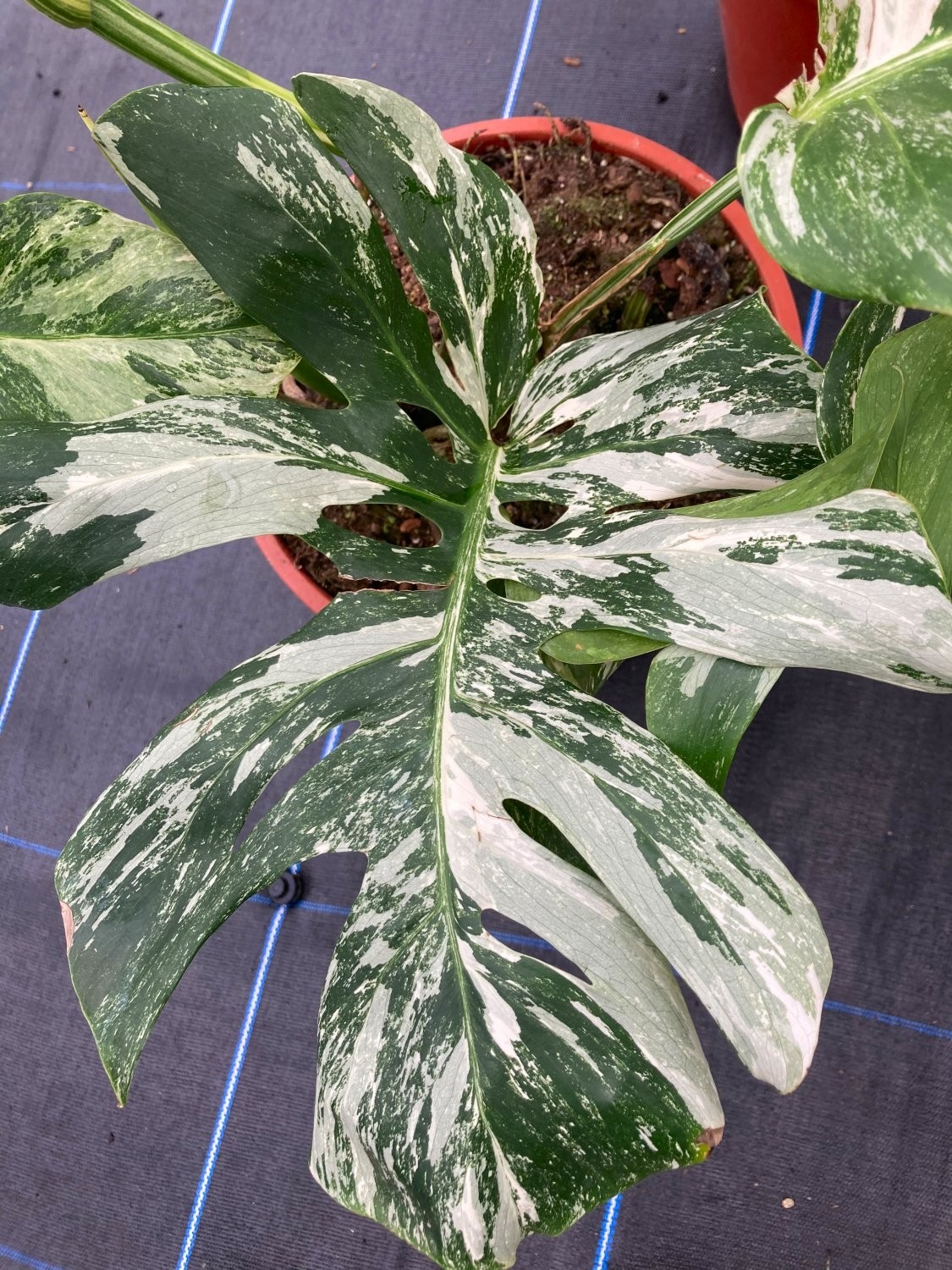
Monstera deliciosa variegata Variegated Swiss Cheese Plant Indoor Foliage Plants House
Monstera deliciosa, also known as the split-leaf philodendron or Swiss cheese plant, is a tropical plant often kept as a houseplant. This easy-to-grow climbing evergreen can be found in many designer spaces for its "wow" factor. Monstera deliciosa makes a statement with its glossy, heart-shaped split leaves.
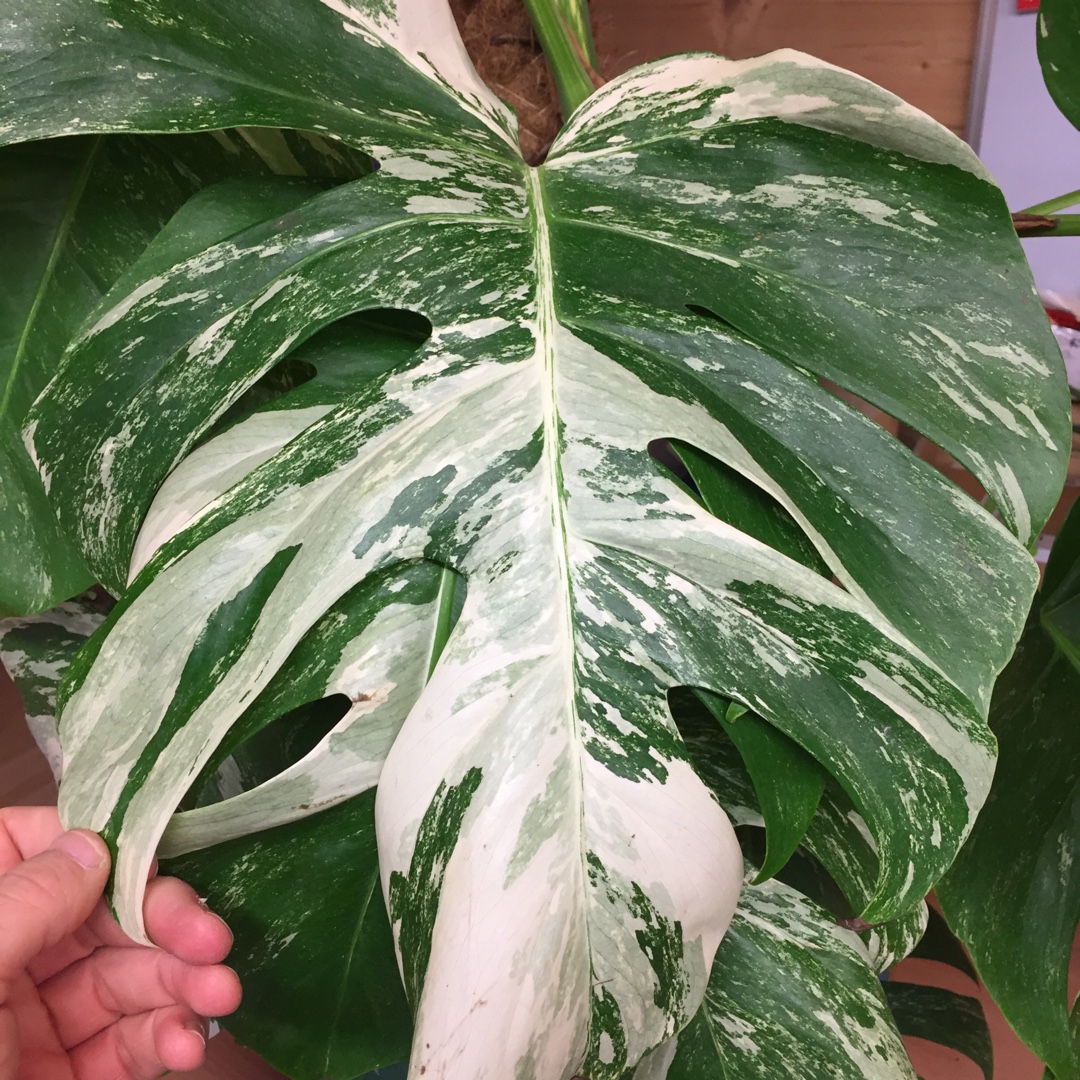
Monstera deliciosa 'Variegata', Swiss Cheese Plant 'Variegata' in GardenTags plant encyclopedia
Under glass grow in a loam-based potting compost in bright indirect light with moderate to high humidity. Water when in growth and keep just moist in winter. Apply a balanced liquid fertiliser monthly when in growth. May be grown outdoors in most moderately fertile, humus-rich soils in partial shade. See houseplant cultivation and Monstera for.
Monstera Deliciosa Variegata
The Variegated Monstera Deliciosa thrives in increased humidity above 60%, well-draining soil, bright indirect light, and temperatures between 65-80ºF (18-27ºC). Fertilize monthly with a liquid fertilizer at half-strength during spring and summer. Use a good balanced 20-20-20 NPK fertilizer. Do not fertilize in the autumn and winter months.
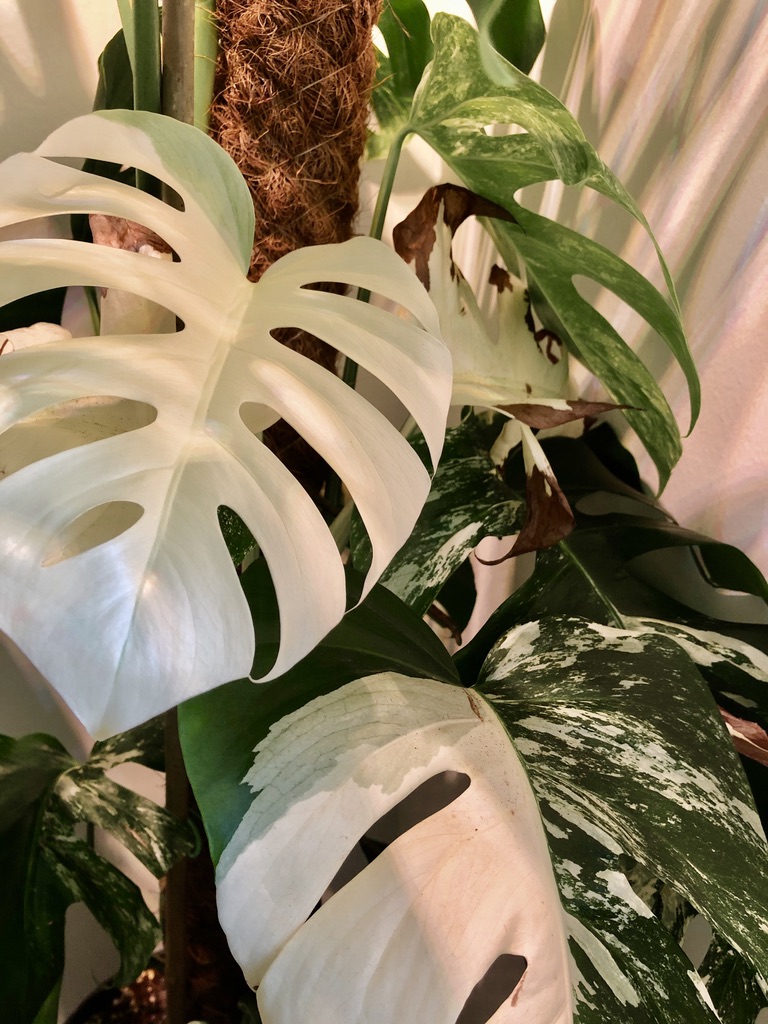
Einzelstück!!! Monstera deliciosa „Variegata“ medium Kopfsteckling (hoher Weißanteil) insane
The most common of the variegated monstera varieties are: 1. Monstera deliciosa "Thai Constellation". Image via The Plant Farm (on etsy) This is by far the most common of the variegated plants, and the one that you will most likely encounter in many plant nurseries. True to their name, the Thai Constellation monstera has white and pale.

True monstera deliciosa albovariegata
Monstera deliciosa 'Thai Constellation' is likely the most popular and widely available type of variegated monstera in the United States. 'Thai Constellation' monsteras have splotchy galaxy-like variegation patterns in shades of creamy white and light yellow. Most, if not all, of the leaves will have some type of variegation on them.

Monstera deliciosa var. borsigiana albovariegata Steve's Leaves
In Monstera, variegation is exceptionally rare, making these beautiful anomalies immensely in demand. In this article, we'll take a deep dive into everything there is to know about variegated Monstera. From the different varieties to how they are bred, how much they cost, and how to care for them. Table of Contents
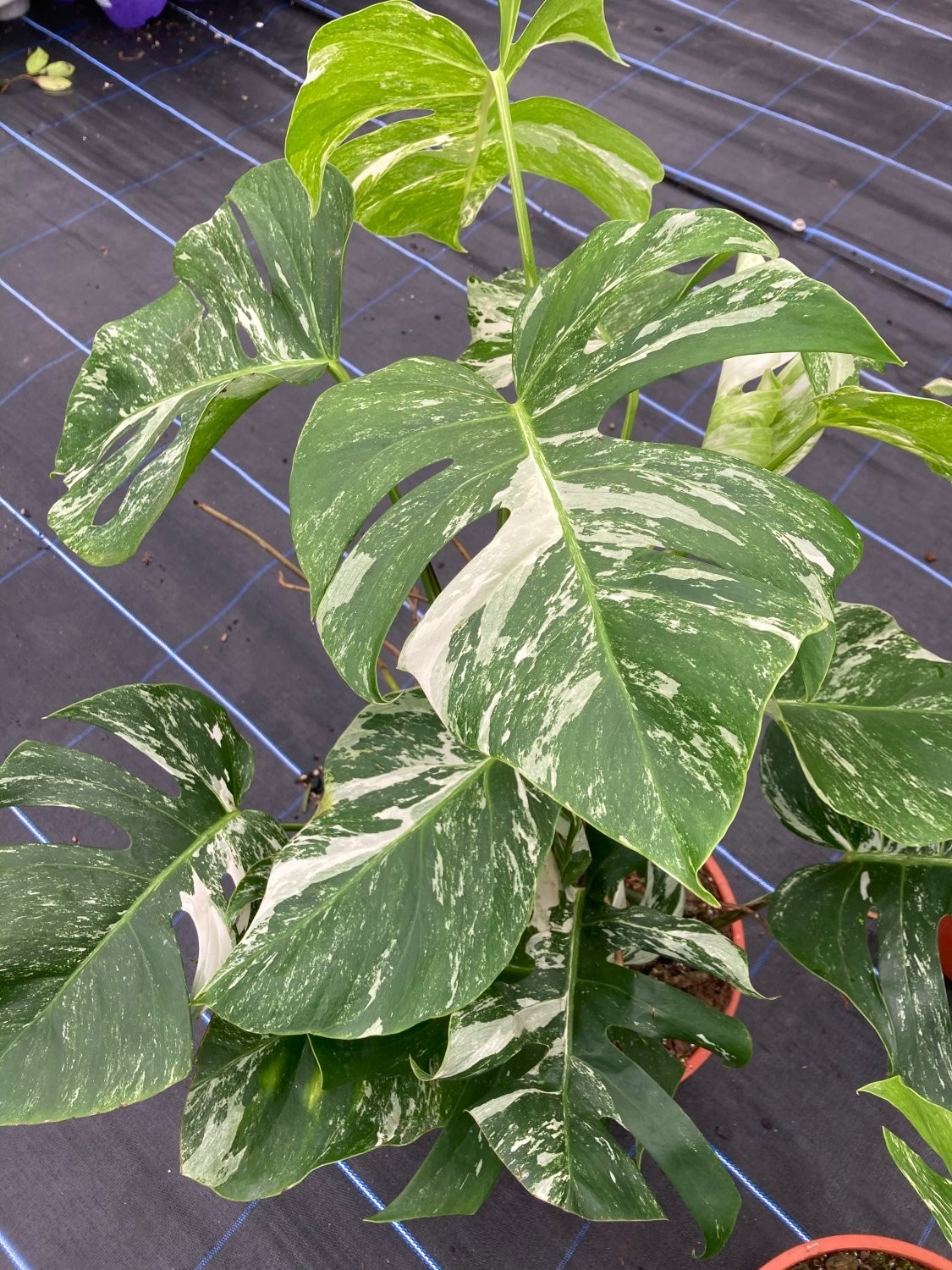
LARGE Monstera deliciosa variegata Variegated Swiss Cheese Plant Large House Plants
Description This member of the arum family ( Araceae) is a hemiepiphyte [10] with aerial roots. It is able to grow up to 20 m (66 ft) high in the wild, with large, leathery, glossy, pinnate, heart-shaped leaves 25-90 cm (10-35.5 in) long by 25-75 cm (10-29.5 in) broad.
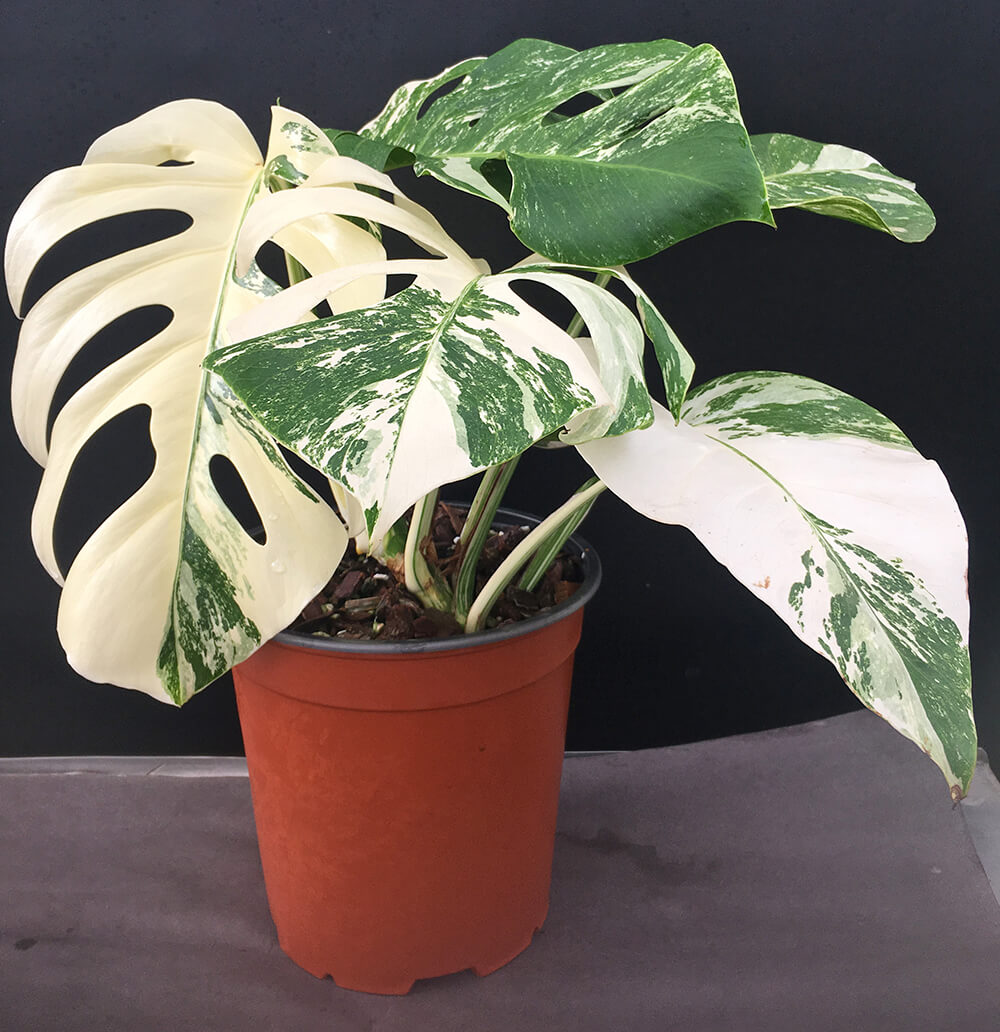
Variegated Monstera deliciosa borsigiana Odd Spot Plants
Variegated Monstera is an indoor species known for its unique leaf coloration. The plant features a mix of dark green and white patterns. Variegated Monstera produces less chlorophyll, which causes slow growth. Its thick, leathery leaves have holes reaching between 15 to 20 inches long.
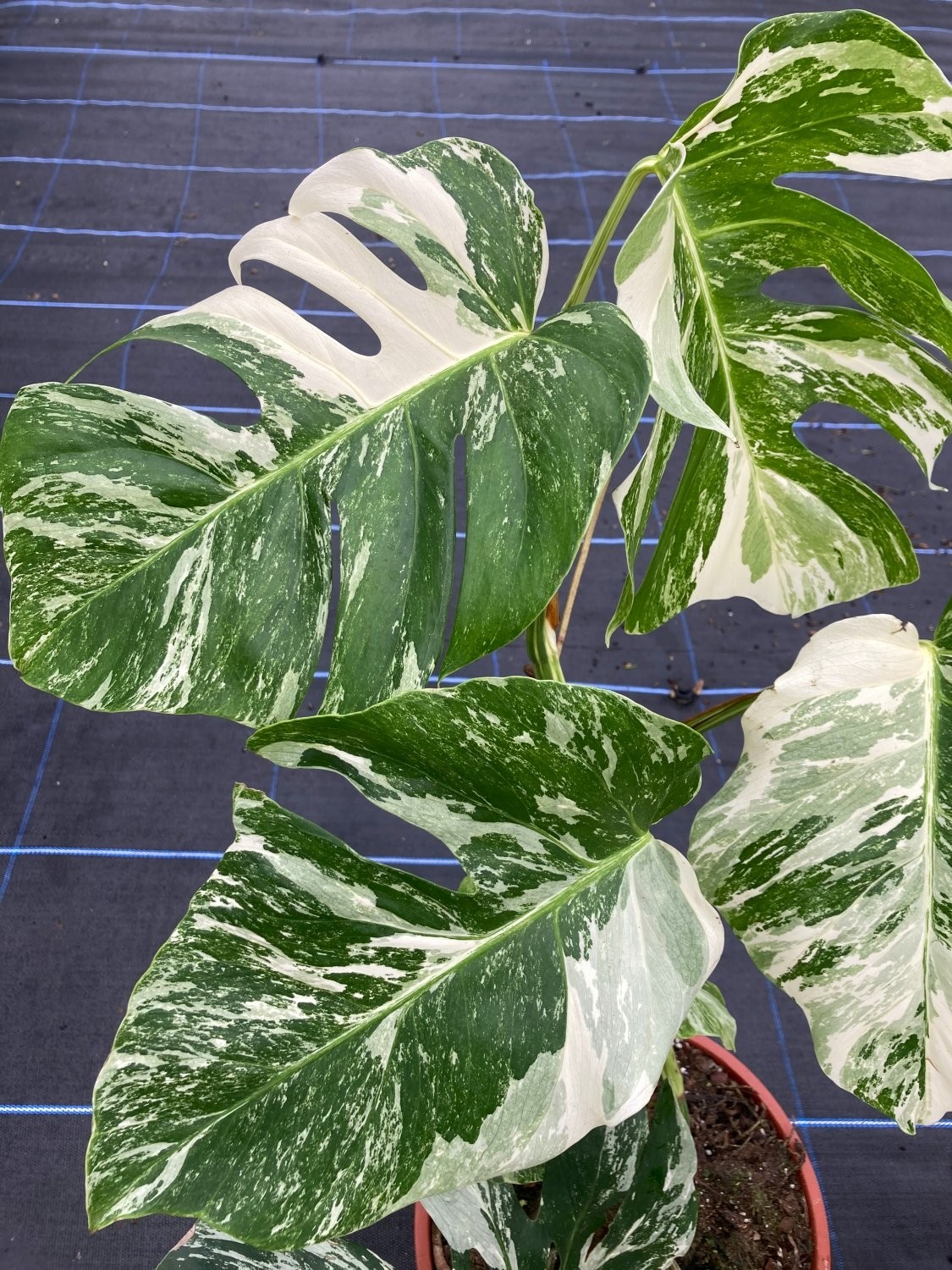
Monstera deliciosa variegata Variegated Swiss Cheese Plant Indoor Foliage Plants House
Monstera Variegata or Variegated Monstera Deliciosa is THE trend in the houseplant community. Variegation means that plants have white or sometimes yellow splashes on their leaves and also variegated sections on their stems and petioles - that's the stalk where the leaf is connected to - just to use the botanical correct lingo.
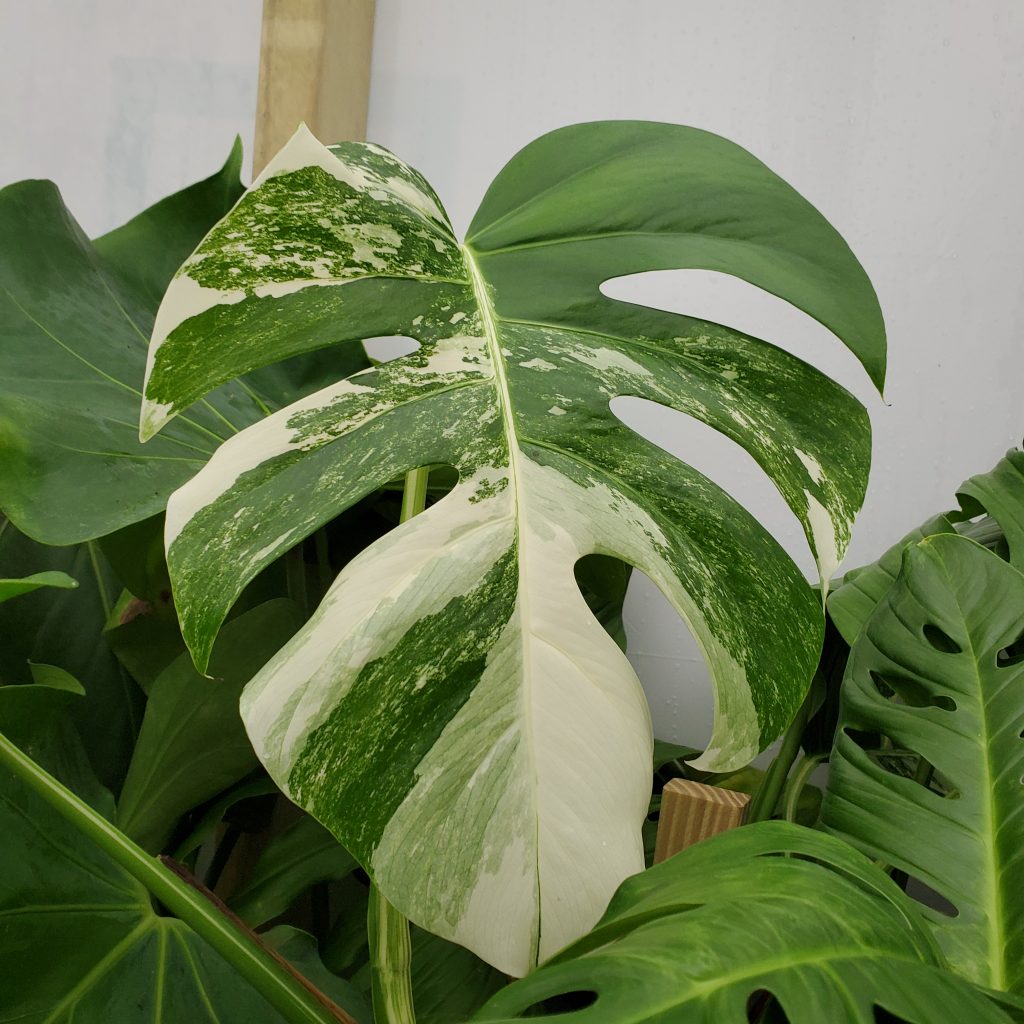
Plant Reward Monstera Deliciosa Borsigiana Variegata Albo EdenCPs
Plan on watering every 1-2 weeks. Fully saturate the soil with water and make sure it drains from the pot. Empty excess water from the saucer or add water where the pot can drain freely (like a patio, shower, or sink). Let the soil dry between waterings to avoid root rot. Use a soil mix that drains well.

Monstera deliciosa variegata Plants, Cool plants, Variegated plants
The discolored tissue in Monsteras is caused by a genetic mutation prohibiting some of the plant's tissue from producing chlorophyll. In case you didn't know, chlorophyll is the molecule that gives plants their green color. Plants also use the compound to capture the sun's energy.
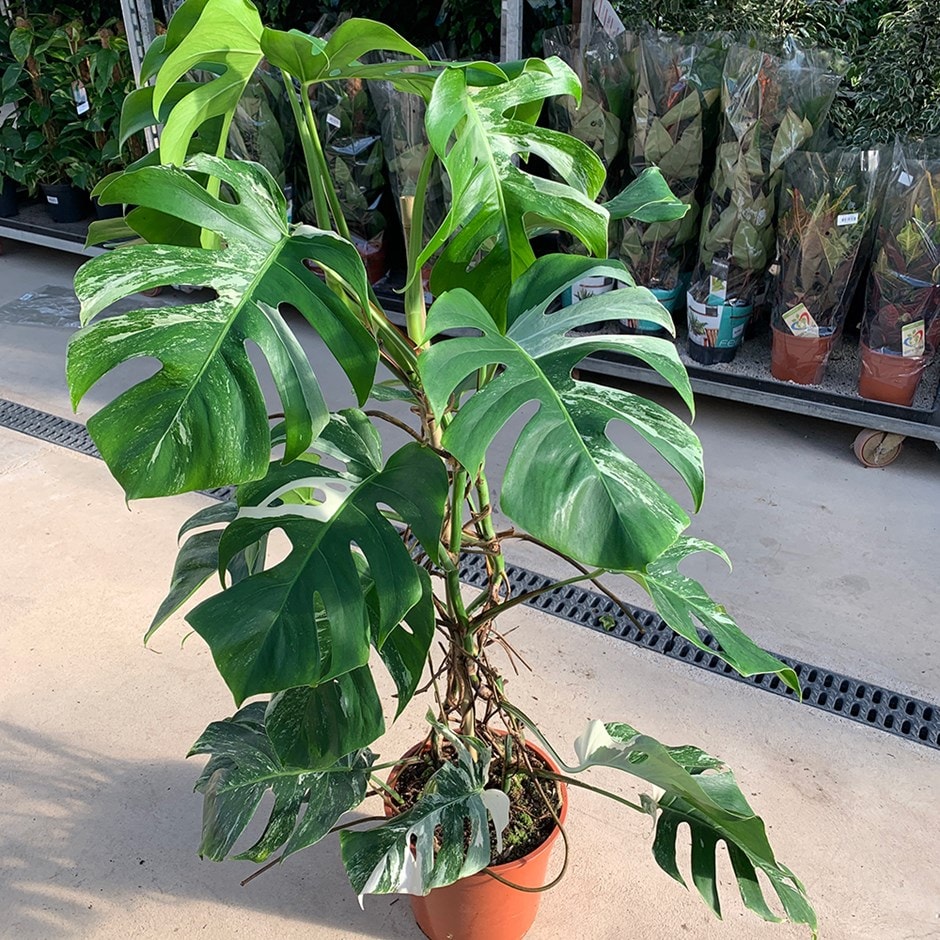
Buy swiss cheese plant Monstera deliciosa Variegata £349.99 Delivery by Crocus
Monstera deliciosa, commonly called split-leaf philodendron or swiss cheese plant, is native to Central America. It is a climbing, evergreen perennial vine that is perhaps most noted for its large perforated leaves on thick plant stems and its long cord-like aerial roots.
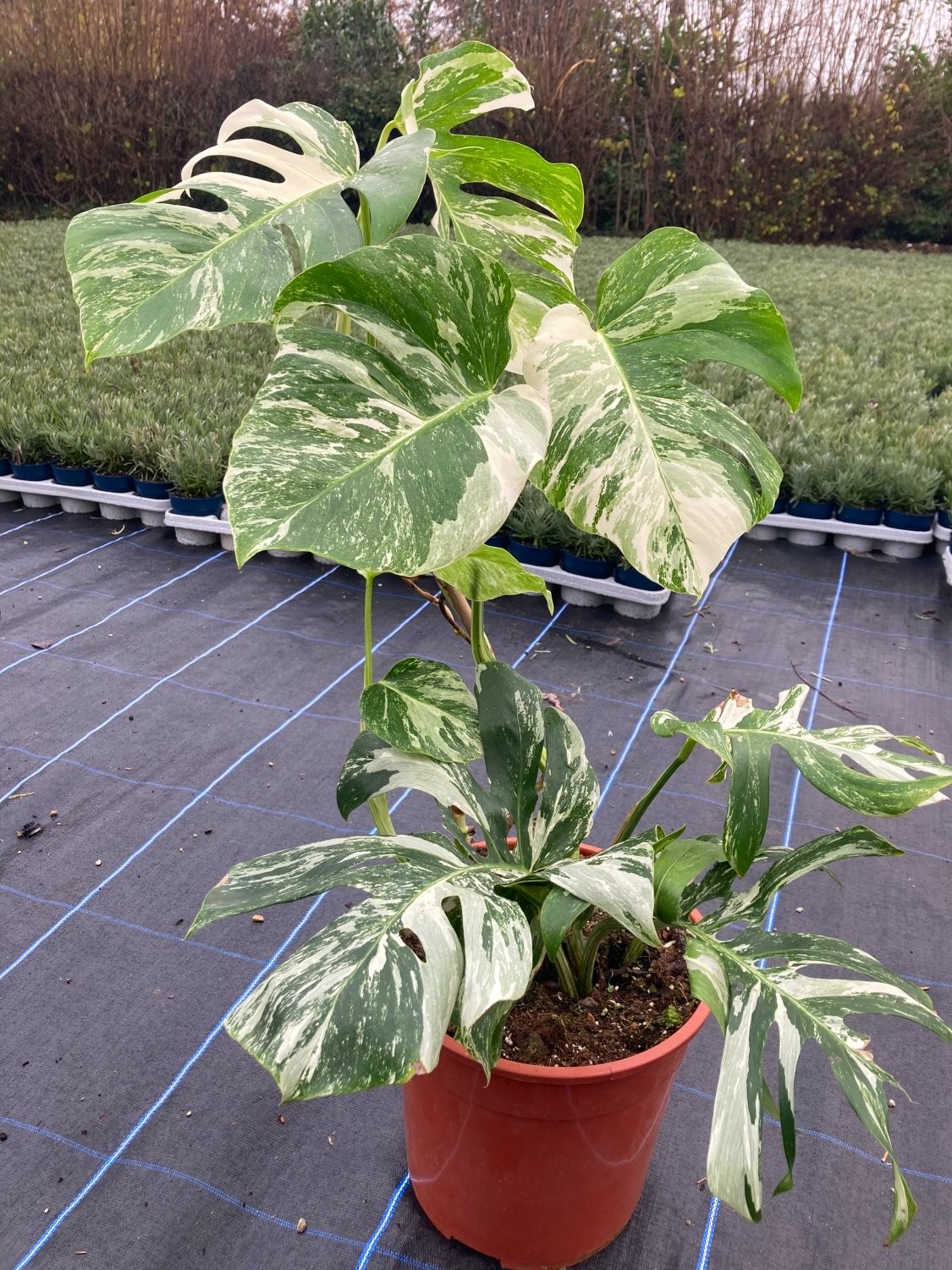
LARGE Monstera deliciosa variegata Variegated Swiss Cheese Plant Large House Plants
In this post, I will go over 7 very important tips to care for your variegated Monstera, including ideal cultural conditions, repotting, propagating and what to look for when buying online so you don't get ripped off!

Monstera Deliciosa var. Borsigiana Variegata L Plant Circle
Monstera variegata, also known as the "Variegated Monstera deliciosa," or "split-leaf philodendron," is a rare and highly sought-after tropical climbing vine.It is known for its distinct variegation patterns, resulting in leaves with both green and white or yellow coloring.

Monstera Deliciosa Variegata MONSTERA
Monstera deliciosa, the species' wild form, is naturally found in Central American rainforests. It grows as a liana (a long-stemmed woody vine) using taller trees as supports, climbing upwards in order to reach more light. What is variegation?
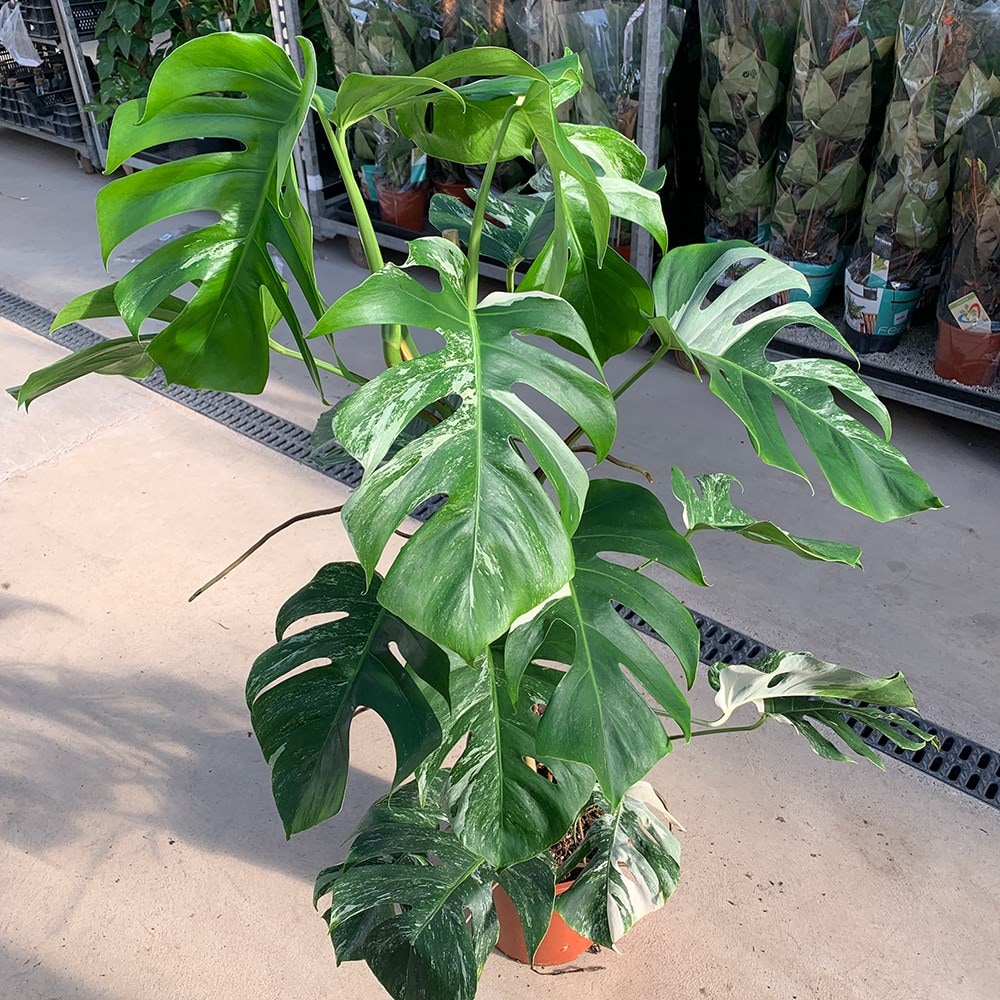
Buy swiss cheese plant Monstera deliciosa Variegata £349.99 Delivery by Crocus
A variegated monstera consistently generates leaves that have shades of white or yellow splashed on their foliage in an all-over marbled pattern or just in certain sections. The variegation is part of the monstera's genetics and is not caused by viruses, pests, overwatering, sunburn, or other environmental factors.